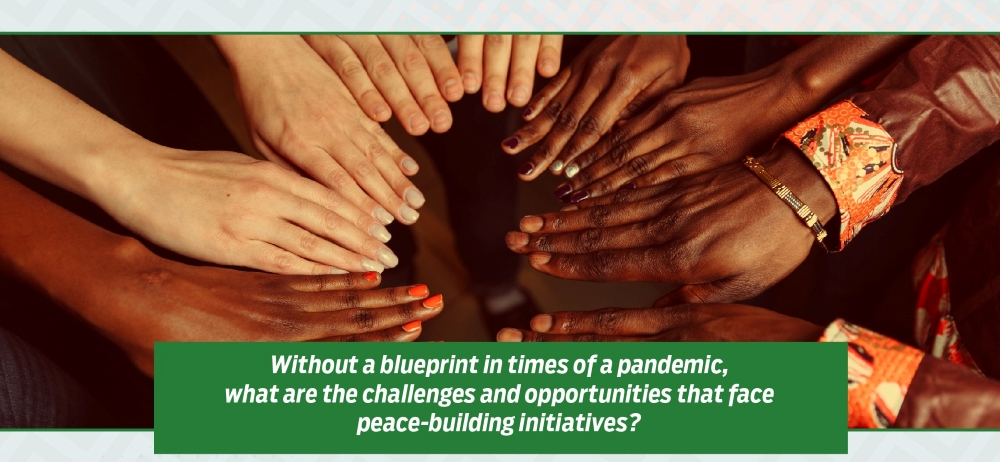“Offering the young hope and opportunities in a time of uncertain future is also one of the keys for addressing the pressing problem of identity-based conflict, driven by the violent extremism of religious and ethnic hatred. On this issue more than nearly any other, we need more than policies and programs. We need an overarching vision, a vision based on our common humanity, a vision that inspires meaning and purpose that can transcend the divisive ideologies of the extremists.” —Dr. Hyun Jin P. Moon
Africa is a continent rich with resources, culture, and diversity. Many countries across Africa have experienced untold challenges and tragedy with the global pandemic only adding another layer of complexity… and opportunity according to many peacebuilding leaders.
Sharing their insights and optimism in an international virtual conference, African leaders from Kenya, Uganda, Tanzania, and Nigeria revealed how they are turning suffering into an opportunity for growth and adaptation in an ever-changing global landscape. Crisis and challenges are a natural occurrence that often highlights what is most important to our humanity. Whether it is a pandemic or natural disaster, we as humankind rush to the aid of the vulnerable and in need in our communities. We remember what is essential to each of us; basic human needs and rights that every person is granted as a human being.
The continent of Africa is a special place; a land lush with innovation and optimism. Countries within her borders have experienced untold human tragedy, natural disasters, and violent conflict as a result of an “us vs. them” mentality that instigates a vicious cycle of underdevelopment, poverty, environmental degradation, and social disorder as a result of various identities, many that are tribal or religious. However, her borders are also filled with untold possibilities and people that have retained an attitude of positivity and brotherhood. In recent years, leaders have been reaching across the aisle to band together under their shared identity and common aspirations as members of the human family first, beyond the boundaries of ethnicity, religion, and nationality.
The global pandemic has caused an unprecedented disruption and has fundamentally altered the way we conduct peacebuilding. As the access to public spaces become limited, now more than ever, religious and community leaders play an essential role in bridging people. Conflict resolution programs have needed to seek out different methods, incorporating digital means that have opened up possibilities to an even greater scale, uniting the world like never before.
In many ways, the pandemic has forced programs to expand to an even bigger audience, allowing more people to participate in peacebuilding efforts online. This comes at an opportune time as we have seen an increase in the online radicalization of youth: a serious and growing global threat. This has renewed relevance in the wake of the pandemic, and there is growing evidence that the extremists are taking advantage of the fear and uncertainty surrounding the pandemic to radicalize and recruit youth online. While social media is being used by the extremists to spread radical content, it is also a very powerful tool to prevent conflict and extremism and promote greater understanding and tolerance. This is why African leaders are discussing how social media can be leveraged to prevent youth radicalization and how to empower youth to counter the disruptive impact of extremists’ messaging and become powerful agents for peace.
Read more about the Global Peace Leadership Africa Virtual Conference at www.globalpeace.org.
The original post appears on Global Peace Foundation. Global Peace Foundation is an international non-sectarian, non-partisan, nonprofit organization, which promotes an innovative, values-based approach to peacebuilding, guided by the vision of One Family under God. GPF engages and organizes a global network of public and private-sector partners who develop community, national, and regional peace building models as the foundation for ethical and cohesive societies. Dr. Hyun Jin Preston Moon is founder and chairman of the Global Peace Foundation.

